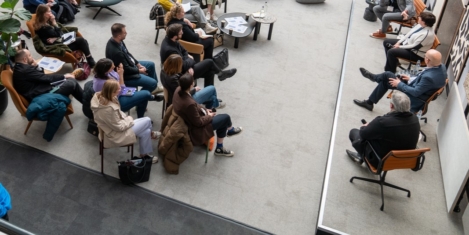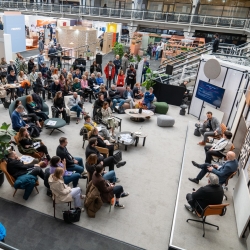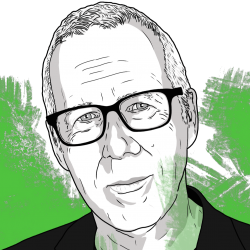To provide the best experiences, we use technologies like cookies to store and/or access device information. Consenting to these technologies will allow us to process data such as browsing behaviour or unique IDs on this site. Not consenting or withdrawing consent, may adversely affect certain features and functions.
The technical storage or access is strictly necessary for the legitimate purpose of enabling the use of a specific service explicitly requested by the subscriber or user, or for the sole purpose of carrying out the transmission of a communication over an electronic communications network.
The technical storage or access is necessary for the legitimate purpose of storing preferences that are not requested by the subscriber or user.
The technical storage or access that is used exclusively for statistical purposes.
The technical storage or access that is used exclusively for anonymous statistical purposes. Without a subpoena, voluntary compliance on the part of your Internet Service Provider, or additional records from a third party, information stored or retrieved for this purpose alone cannot usually be used to identify you.
The technical storage or access is required to create user profiles to send advertising, or to track the user on a website or across several websites for similar marketing purposes.
 New data and economic modelling from AXA UK and Centre for Business and Economic Research (Cebr) claims that people are struggling with burnout and work-related stress, with an estimated £28bn lost last year due to poor mental health at work. The majority of this cost is due to loss of working days because of stress, burnout and general poor mental health, with businesses losing 23.3m working days as a result of these issues. (more…)
New data and economic modelling from AXA UK and Centre for Business and Economic Research (Cebr) claims that people are struggling with burnout and work-related stress, with an estimated £28bn lost last year due to poor mental health at work. The majority of this cost is due to loss of working days because of stress, burnout and general poor mental health, with businesses losing 23.3m working days as a result of these issues. (more…)
















 One in four (23 percent) UK office workers plan to take advantage of remote working to log on from abroad in 2023, with a third (32 percent) doing so against company rules, according to new research by the risk management and insurance broker, Gallagher. The survey of more than 2,000 UK office workers claims that the dramatic increase in hybrid working post pandemic now extends to a “work from anywhere” culture. But employees choosing to locate themselves overseas brings risk implications for their employer, as well as themselves.
One in four (23 percent) UK office workers plan to take advantage of remote working to log on from abroad in 2023, with a third (32 percent) doing so against company rules, according to new research by the risk management and insurance broker, Gallagher. The survey of more than 2,000 UK office workers claims that the dramatic increase in hybrid working post pandemic now extends to a “work from anywhere” culture. But employees choosing to locate themselves overseas brings risk implications for their employer, as well as themselves. 













March 30, 2023
Every workplace innovation contains the seeds of its opposite
by Mark Eltringham • Comment, Flexible working, Technology